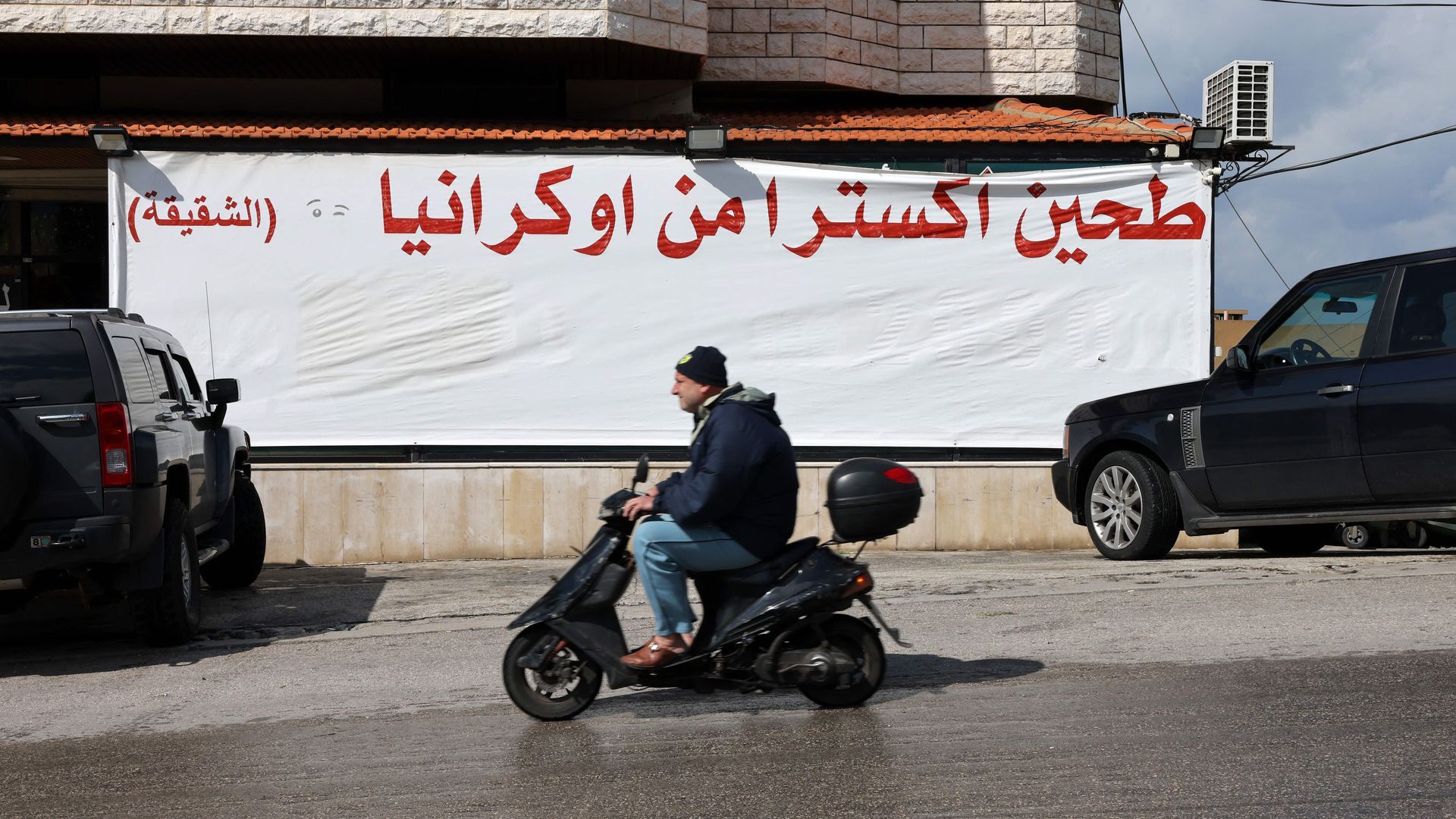Arab world divided on Russia-Ukraine
Add Axios as your preferred source to
see more of our stories on Google.

A banner in the coastal town of Halat north of the Lebanese capital Beirut reads, high "quality flour from (friendly) Ukraine," on Feb. 26. Photo: Joseph Eid/AFP via Getty Images
AMMAN, Jordan — Public opinion in the Arab world is split on Russia's invasion of Ukraine, with many players taking positions according to their domestic or regional political divides.
Driving the news: The majority of Arab countries kept silent or gave very careful responses after Russia began its assault on Ukraine, trying to balance their relations with the U.S., Russia and Ukraine.
- The Arab League, meanwhile, took a largely neutral position, with an emergency meeting on Sunday ending with a statement expressing “concern” regarding the “events” in Ukraine and stressing the importance of “continued coordination” to help Arab communities in Ukraine.
The big picture: Russia and Ukraine provide nearly one-quarter of the world's exports of wheat, with a significant amount sent to the Middle East and North Africa.
- About 85% of Egypt's recent wheat imports, for example, came from Russia and Ukraine.
What they're saying: There is no one Arab position on the war, according to Sen. Mustafa Hamarneh, a member of the Jordanian upper house of parliament.
- “Those who support [Syrian President Bashar al-Assad] and Hezbollah are in favor of Russia, irrespective of everything else, while those who believe in human rights and freedom of speech support Ukraine," he tells Axios.
- Agyyad Abu Zayed, a Syrian journalist working in Jordan, said that by and large the Syrian opposition is with Ukraine, while those supporting Assad are with Putin.
The Israeli-Palestinian conflict has also divided support for Ukraine.
- Hamarneh said Arab social media feeds are full of people sharing posts made by Ukrainian President Volodymyr Zelensky in support of Israel during the Gaza war. “This will mobilize the anti-Zelensky coalition," he said.
- Dima Khatib, a Palestinian activist living in Doha, claimed it was hypocritical for the West to support Ukrainian resistance while often calling Palestinian resistance to the Israeli occupation terrorism. It's an argument echoed by other Palestinians and some of their supporters online.
Meanwhile, opinion in Lebanon is mixed along long-standing divisions in the country.
- The pro-Hezbollah camp has sided completely with Russia, while those who do not back Hezbollah are voicing their support for Ukraine, according to Ayman Mhanna, director of the Beirut-based Samir Kassir Foundation.
